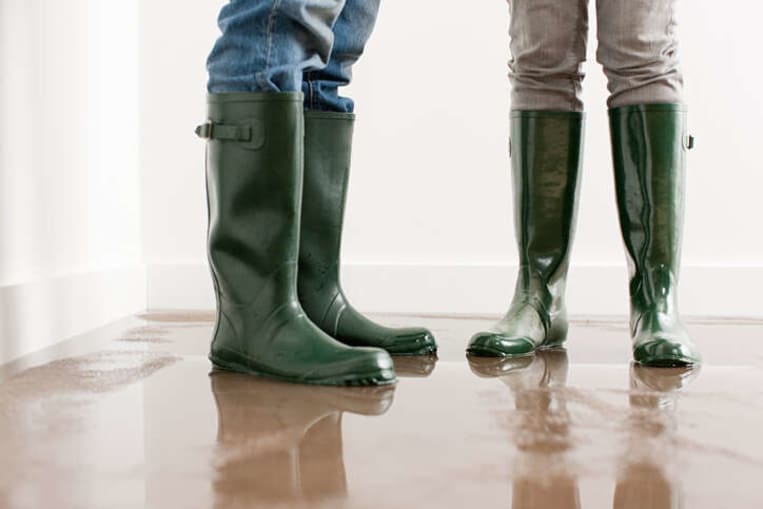
BBB Tip: How to buy flood insurance

(Getty Images)
See all of BBB's flooding resources at BBB.org/flood.
Flooding is the single most common weather-related natural disaster. According to the National Severe Storms Laboratory (NSSL), floods occur in every U.S. state and territory and take more lives each year than tornados, hurricanes, or lightening. Not only are they dangerous, floods can also cause tremendous damage to buildings, cars, and other valuable possessions in a very short amount of time. In fact, FEMA reports that just one inch of floodwater can cause up to $25,000 in damage.
With hurricane season just around the corner and warm-weather storms already brewing, it’s critical to take measures to protect your home and belongings from flood damage. BBB recommends the following tips to protect your family’s financial security by purchasing flood insurance.
- Know the risks for your area. Look up your address in FEMA’s Flood Map Service Center to find out if you live or work in an area that is at high risk for flooding. You may be required to have flood insurance if your home or business is in a high-risk area and is mortgaged with a government-backed lender.
- Speak with a reputable flood insurance agent. Start by speaking with your current homeowners', renters', or auto insurance companies to find out if they offer flood insurance. Homeowners insurance policies generally do not cover flood damage, so you’ll need to purchase a flood policy separately. If you need help finding a provider, visit floodsmart.gov. You can also find Find flood insurance companies near you on BBB.org.
- Purchase flood insurance. Discuss policies with an agent before you purchase one to make sure you get the right coverage and the right amount of coverage. Remember that flood insurance generally covers damage from water that was on the ground before entering your home, while homeowners insurance covers other kinds of water damage, such as damage from a broken pipe or leaky roof. Keep in mind that if flood insurance isn’t mandatory where you live, there is typically a 30-day waiting period for a National Flood Insurance Program policy to go into effect.
- Take a household inventory. Take an inventory of all your household valuables and appliances by documenting them with photos and videos. Keep your images in a safe place – they will be necessary in the event you need to file a claim.
- Store important documents. Keep important paperwork, such as passports, birth certificates, medical records, and deeds of ownership safe by storing them in a waterproof safety deposit box. You may want to store important sentimental items, like family photos, in a similar way. Keep such items in a central place where you can easily take them with you if you need to evacuate.
- Understand how filing a claim works. There are steps to take when filing a claim. First, start your claim by reporting flood damage to your insurance agent promptly. Next, document your loss and begin clean up. Finally, meet with your adjuster and receive payment. See FEMA’s guide on how to file a flood insurance claim for more details on each step.
- Work with your insurance company when repairing damage. When dealing with flooding and mold, contact your insurance agent to ask for recommendations for reliable water damage restoration companies. Even if they don’t have any specific recommendations for your area, you can still inquire about what kind of services your insurance policy covers and how you should proceed with filing your claim as you make repairs.
For more information
Read the our tips on preparing for and recovering from flooding as well as avoiding flood damaged cars. If there have been floods in your area, read our advice for avoiding storm chasers. Find out more ways to stay safe before, during and after flooding at ready.gov.
Find flood insurance companies near you.
Always look for businesses who adhere to the BBB Standards for Trust. Read more about BBB's Accreditation Standards.
Still Need Assistance?
Contact Your Local BBB
Your local Better Business Bureau can assist you with finding businesses you can trust. Start With Trust®.
Additional Resources
Central Ohio BBB Business Podcast